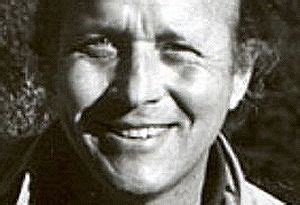A Quote by Walt Whitman
What is that you express in your eyes? It seems to me more than all the print I have read in my life.
Related Quotes
Anyway, when I finished the book, I handed it in, didn't want to read it again, but when it finally was in print I felt like OK, I have to read this. And yeah, I thought God, this is petty, this is silly, too emotional, too raw...and maybe it was then, but now it all seems that it's so much better because all the stuff that felt petty and silly now seems more relevant because Andy was so important.
You are far more than your personality, more than your habits, more than your achievements. You are an infinitely complex human being with stories and myths and dreams- and ambitions of cosmic proportions. Don't waste time underestimating yourself. Dream big... Use the energy of your archetype to express the true reason you were born. Life was never meant to be safe. It was meant to be lived right to the end.
I think what you have to do in print is to create even more memorable images and more memorable pieces because what one consumes online or in social has a much shorter shelf life, so to speak, so what print has to have is no more weight, but it has to be something that you can't find so easily online. It has to really stand for print.
The less you eat, drink and read books; the less you go to the theatre, the dance hall, the public house; the less you think, love, theorize, sing, paint, fence, etc., the more you save-the greater becomes your treasure which neither moths nor dust will devour-your capital. The less you are, the more you have; the less you express your own life, the greater is your alienated life-the greater is the store of your estranged being.
All that is necessary, as it seems to me, to convince any reasonable person that the Bible is simply and purely of human invention - of barbarian invention - is to read it. Read it as you would any other book; think of it as you would of any other; get the bandage of reverence from your eyes; drive from your heart the phantom of fear; push from the throne of your brain the cowled form of superstition - then read the Holy Bible, and you will be amazed that you ever, for one moment, supposed a being of infinite wisdom, goodness and purity, to be the author of such ignorance and of such atrocity.
Now, the world is more than it seems to be. You know this, of course, because you read stories. You understand that there is the surface and then there are all the things that glimmer and shift underneath it. And you know that not everyone believes in those things, that there are people—a great many people—who believe the world cannot be any more than what they can see with their eyes. But we know better.
You beg for happiness in life, but security is more important to you, even if it costs you your spine or your life. Your life will be good and secure when aliveness will mean more to you than security; love more than money; your freedom more than party line or public opinion; when your thinking will be in harmony with your feelings; when the teachers of your children will be better paid than the politicians; when you will have more respect for the love between man and woman than for a marriage license.
Because I think of novels as collaborative enterprises between the writer and the reader, all of my novels so far have ending with endings that maybe point in more than one direction, and that seems important to me because it seems important to me that after you've invested twenty or thirty hours of your imaginative life into this narrative that you have some stake in how it ends.
The best advice I can give on this is, once it's done, to put it away until you can read it with new eyes. Finish the short story, print it out, then put it in a drawer and write other things. When you're ready, pick it up and read it, as if you've never read it before. If there are things you aren't satisfied with as a reader, go in and fix them as a writer: that's revision.







































